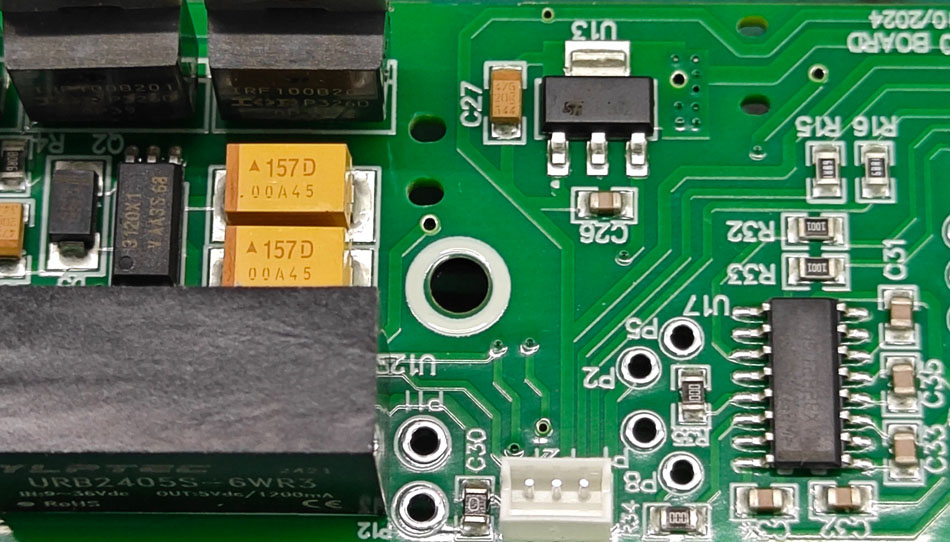- English
- Español
- Português
- русский
- Français
- 日本語
- Deutsch
- tiếng Việt
- Italiano
- Nederlands
- ภาษาไทย
- Polski
- 한국어
- Svenska
- magyar
- Malay
- বাংলা ভাষার
- Dansk
- Suomi
- हिन्दी
- Pilipino
- Türkçe
- Gaeilge
- العربية
- Indonesia
- Norsk
- تمل
- český
- ελληνικά
- український
- Javanese
- فارسی
- தமிழ்
- తెలుగు
- नेपाली
- Burmese
- български
- ລາວ
- Latine
- Қазақша
- Euskal
- Azərbaycan
- Slovenský jazyk
- Македонски
- Lietuvos
- Eesti Keel
- Română
- Slovenski
- मराठी
- Srpski језик
Environmental Innovation in PCBA Factories: How to Reduce Costs by Reducing Waste and Energy Consumption?
2025-09-23
In modern manufacturing, environmental protection has become a crucial factor in achieving sustainable development and enhancing competitiveness. For PCBA (Printed Circuit Board Assembly) factories, implementing environmental innovation not only helps meet regulatory requirements but also reduces production costs. This article will explore how PCBA factories can effectively control costs by reducing waste and energy consumption.

1. The Importance of Waste Reduction
Sources and Impacts of Waste
The generation of waste is inevitable during the PCBA manufacturing process, primarily from processes such as material cutting, welding, and assembly. Waste not only increases production costs but also places a burden on the environment. Therefore, reducing waste is key to achieving both environmental protection and cost control.
Benefits of Waste Reduction
By reducing waste, PCBA factories can lower material procurement and processing costs while also reducing the environmental liability associated with waste disposal. Furthermore, reducing waste improves production efficiency, enabling companies to respond more quickly to market demands.
2. Implementing Waste Management Strategies
Lean Manufacturing Methods
Lean manufacturing emphasizes eliminating waste and focusing on efficiency at every stage of production. PCBA factories can adopt lean manufacturing methods to reduce waste by optimizing production processes, rationalizing layout planning, and reducing non-value-added activities. For example, using efficient equipment and processes can minimize material waste while maintaining product quality.
Improving Material Utilization
Improving material utilization is a key way to reduce waste. PCBA factories can maximize material utilization through precise cutting and layout design. For example, when designing PCB boards, they can adopt a reasonable layout and dimensions to avoid material waste. Factories can also introduce advanced measuring and testing equipment to ensure early detection and correction of problems during the production process, reducing waste caused by quality issues.
Waste Recycling and Reuse
Establishing a waste recycling system to sort, recycle, and reuse waste generated during the production process can effectively reduce waste disposal costs. For example, certain waste materials, such as metal materials and PCB substrates, can be recycled and reprocessed, turning waste into valuable resources and improving resource utilization.
3. Strategies for Reducing Energy Consumption
Introducing Energy-Saving Equipment
Introducing energy-saving production equipment is a key measure to reduce energy consumption. Modern equipment generally offers higher energy efficiency and lower energy consumption. By upgrading equipment, PCBA factories can significantly reduce energy expenditures while improving production efficiency.
Optimizing Production Processes
Optimizing production processes not only improves efficiency but also helps reduce energy consumption. By rationally allocating production lines and reducing equipment idling and standby time, factories can achieve higher energy utilization rates. Furthermore, rationally scheduling production and avoiding concentrated production during peak hours is also an effective way to reduce energy consumption.
Energy Management System
Establishing an energy management system to monitor and analyze energy consumption during production in real time can help identify potential energy-saving opportunities. Through data analysis, PCBA factories can develop appropriate energy-saving measures to reduce energy waste and improve overall production efficiency.
Conclusion
By implementing environmental innovations, PCBA factories can not only reduce waste and energy consumption but also significantly lower production costs. Adopting lean production methods, improving material utilization, introducing energy-saving equipment, and optimizing production processes are all important strategies for achieving a win-win situation for both environmental protection and cost control. In the future competition, PCBA factories with environmental awareness and practical ability will be more competitive in the market and win the favor of customers.
-
Delivery Service






-
Payment Options









